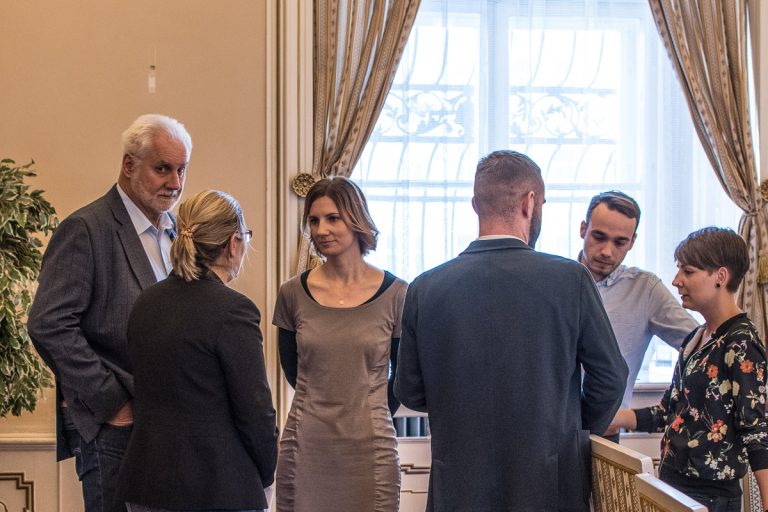The mayor of Brno discussed the possible public support of Teplarny, the Brno Transport Company and commercial entities with the President of the Office for the Protection of Competition. Photo Credit: Casadei graphics
Brno, 2 Sept. (BD) – Mayor of Brno Markéta Vaňková today met the President of the Office for the Protection of Competition, Petr Mlsna, to discuss the feasibility of measures to solve the current energy crisis, in terms of competition and public support.
“In connection with the war in Ukraine, in March the European Commission approved the so-called temporary crisis framework. On the basis of this framework, it is possible to provide very flexible public support to energy-intensive industries affected by an increase in gas or electricity prices,” said Mlsna after the meeting.
Vaňková argued that the best solution to the sharp rise in energy prices is a Europe-wide price cap. If no agreement is reached or if it takes too long to be implemented, she said that a national plan should be launched, which is being prepared now, headed by Petr Fiala.
“Thanks to this meeting, I have important information in view of Friday’s session in Prague, which will be attended by the Minister of Justice, the Prime Minister’s energy advisor, a representative of the Ministry of Finance, the Vice-President of the Prosecutor’s Office, and other lawyers and economists. In addition to public support, we will discuss the possible regulation of energy prices through the Price Act or an amendment to the Energy Act, the imposition of duties on Czech electricity exports, or the taxation of energy transactions,” said Vaňková.
Vaňková added that support and compensation programmes to address rising energy prices for energy-intensive companies, such as heating plants or transport companies, should be prepared at the government and ministerial level. The assistance could therefore also cover the Brno Thermal Power Plant, which heats more than 100,000 households and various institutions, to which it could provide heat at better conditions, or the Brno Transport Company. “If the rules of the European Commission are followed, the city itself can also support local businesses,’ Vaňková concluded.






